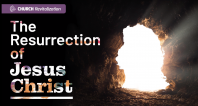
Teaching Points Series

* ADD CHANNEL TO MY FAVORITES
Teaching series to coincide with Preaching Points
Kenneth Priest, Mark Yoakum, and Lance Crowell, lead in a practical discussion of the weekly Bible text of Preaching Points.

Year 1

Launch Series (13 week series)

Bible in 100 Days (15 week series)

Acts (14 week series)

Easter (3 week series)

Christmas (3 week series)

Year 2

Hosea/Amos/Jonah (11 week series)

John (24 week series)

Galatians (11 week series)

One Book Wonders (5 week series)

Year 3

Job/Ecclesiastes (13 week series)

Hebrews (13 week series)

1 & 2 Timothy (9 week series)

The Letters of Paul
Amos Lesson 3: JUDGMENT, CONFLICT AND COURAGE (1440)
In the final section of the book (7:1-9:15) Amos recounts visions of Israel’s coming judgment. Although the book ends on a note of hope (9:11-15), presently Israel stands in a perilous situation of inescapable doom. Because o... more
Amos Lesson 4: JUDGMENT AND RESTORATION (15:31)
In chapter 8 visions of judgment against Israel continue, culminating in the final vision of the LORD standing beside the altar ready to execute judgment against his people. The final words of judgment occur in 9:8-10, followed by ... more
Jonah Lesson 1: THE WAYWARD PROPHET (15:15)
The story of Jonah is undoubtedly one of the most fascinating and best-known stories in all of Scripture. A masterpiece of literature, the story's details engage the reader from beginning to end. Here one reads of a rebellious and ... more
Jonah Lesson 2: THE OBEDIENT, YET DISAPPOINTED PROPHET (14:05)
The third chapter of the Book of Jonah describes how God fulfilled his will for Nineveh by delivering the wayward prophet from the belly of the fish and commissioning him a second time (2:10-3:2). This time Jonah obeyed and deliver... more
Hosea Lesson 5: LIVING WISELY (16:12)
Hosea 12-13 draws a contrast between the way things used to be in Israel prior to Hosea's time, the way they were, and the way they should have been. Here the prophet forces the people to see their various options and to look at th... more
Amos Lesson 1: JUDGMENT UPON THE NATIONS AND ISRAEL (15:46)
Like Hosea, the book of Amos is among the writings in the Old Testament known as the "minor prophets." Amos was a herdsman from Tekoa, a village located six miles from Bethlehem and twelve miles from Jerusalem. Little is known abou... more
Amos Lesson 2: GENUINE AND FALSE RELIGION (15:53)
Amos 5 contains the third message of judgment against Israel, which addresses the problem of formal religion void of sincerity and true meaning. The chapter begins with a prophetic lamentation over the house of Israel that grieves ... more
Hosea Lesson 1: A WAYWARD WIFE AND A FAITHFUL HUSBAND (15:13)
Hosea, categorized as one of the “minor prophets” according to the length of the prophecy, prophesied to the Northern Kingdom, sometimes called Ephraim (the name of the largest tribe). About fifty years before Hosea's t... more
Hosea Lesson 2: SIGNS OF SINFULNESS (16:00)
While Hosea 3 vividly portrays the love of God, chapters four and five focus on the judgment of God. Both love and judgment are inseparable attributes of God. The love of God never excuses or overlooks sin. God forgives and seeks s... more
Hosea Lesson 3: THE LAW OF THE HARVEST: SOWING AND REAPING (15:41)
Hosea 8 continues the theme of Israel's sin and God's judgment. As in previous chapters, Hosea continues to give examples of Israel's sin, but the focus of his prophecy shifts more directly to the consequences of sin. Today's lesso... more
Hosea Lesson 4: LOVE NEVER FAILS (15:57)
Hosea 11 marks a turning point in the prophecy as the theme changes from judgment to restoration. Although the theme of God's love may be found throughout the book, chapter 11 is the high-point. God's love never fails. God's love i... more
Job and Ecclesiastes Lesson 1: THE TESTING OF JOB'S FAITH (13:23)
The life of Job is one of the best-known stories in the Old Testament. The book opens with a description of an upright man of great wealth (1:1-5), who, in God's sovereign providence (1:6-2:7), loses everything. Job's debates with ... more
Job and Ecclesiastes Lesson 2: JOB'S ANGUISHED SEARCH FOR ANSWERS (15:30)
Job refused to curse God forthrightly (2:9-10), but he came close to doing so by cursing the day of his birth (ch. 3). His intense suffering brought about a state of utter despair that welcomed death (3:20- 22). Beginning with chap... more
Job and Ecclesiastes Lesson 3: DO THE WICKED REALLY SUFFER? (12:01)
The second round of speeches by Job and his friends begins in chapter 15. The friends’ perspective on the root cause of Job's suffering does not change, and their remarks to him become less courteous and more direct. Job, how... more
Job and Ecclesiastes Lesson 4: SEEK GOD'S WISDOM IN SUFFERING (11:44)
Job 28, the "wisdom chapter," is distinct from the rest of the book. The chapter serves an important purpose as an interlude between the debate cycle and the major sections that follow and allows the reader an opportunity for refle... more
Job and Ecclesiastes Lesson 5: A BLAMELESS LIFE (13:37)
In the book's Introduction Job is described as a "blameless and upright man who feared God" (1:1). In the debate with his friends Job has maintained all along that his suffering is not related to sin, that he is innocent before God... more
Job and Ecclesiastes Lesson 6: THE SPEECH OF ELIHU (11:25)
Elihu, the last human participant in the debate with Job, appears in chapter 32. His speeches take up the next six chapters and serve as a prelude to the Lord's appearance at the end of the book. Two issues angered Elihu: Job's sel... more
Job and Ecclesiastes Lesson 7: GOD’S APPEARANCE AND JOB’S RESPONSE (11:32)
In the end, God finally spoke, but not in a manner anticipated by Job or his friends. Along the way, Job desired an answer from God (cf. 13:22; 31:35), and each of the friends confidently offered an opinion regarding Job's dilemma.... more
Job and Ecclesiastes Lesson 8: THE EMPTINESS OF LIFE APART FROM GOD (13:41)
In Ecclesiastes we encounter the ponderings of a wisdom teacher (traditionally identified as Solomon) concerning the harsh realities of life, which, from a human point of view, appear to be meaningless. Both intellectually and expe... more
Job and Ecclesiastes Lesson 9: PROBING LIFE QUESTIONS (1455)
Today’s lesson covers selected passages in three different chapters of Ecclesiastes. Each of the passages offers wisdom in relation to different aspects of life in this world. Two of the passages explicitly remind the reader ... more
Job and Ecclesiastes Lesson. 10: WARNINGS CONCERNING WEALTH (11:59)
In 1 Timothy 6, Paul warns of the "love of money" (6:10), yet he also states that God richly supplies us with all things to enjoy (6:17). Similarly, the writer of Ecclesiastes struggled with the tensions presented by wealth as he o... more
Job and Ecclesiastes Lesson 11: WISDOM FOR LIFE (13:34)
Ecclesiastes 7-8 carries the theme of man’s inability to discover the plan of God in the face of life’s complexities (see esp. 7:14, 27-28; 8:17). No one can know for sure what tomorrow will bring. Life is brief. Life i... more
Job and Ecclesiastes Lesson 12: WISDOM IN LIGHT OF LIFE'S UNCERTAINTIES (11:44)
The theme of wisdom for daily living expounded in chapters 7-8 continues in chapters 9-11. How should one live in light of life's unpredictability and the absolute certainty of eventual death? The author contemplates this question ... more
Job and Ecclesiastes Lesson 13: THE CONCLUSION OF THE MATTER (10:16)
Throughout the book of Ecclesiastes the author has examined "life under the sun." Many observations have been made concerning the uncertainties and vanities of life viewed from a human perspective. Now, in chapters 11-12, the autho... more
Holiday Series | Christmas - Lesson 1 (12:48)
Holiday Series | Christmas - Lesson 2 (12:26)
Launch Series Lesson 4: The Church at Smyrna (22:26)
Revelation 2:8-11
Wiersbe: “ is church gets no criticism from the Lord, but a danger is still present. is was a poor and su ering church. How easy it would have been to compromise, become rich, and escape persecution. How dis... more
Launch Series Lesson 5: The Church at Pergamum (28:32)
Revelation 2:12-17
Wiersbe: “ is church had members who held the false doctrine that it was easy to profess Christ while living in sin at the same time. Also, the people were under the heavy hand of spiritual dictators who pro... more
Launch Series Lesson 3: The Church at Ephesus (25:54)
Revelation 2:1-7
The first message is directed toward the church at Ephesus. 2:1 reminds us of the authority of the message. This message was from Jesus Christ. We need to listen to His evaluation of the church and not man&rsq... more
Launch Series Lesson 2: Priority of the Word (Part 2) (31:29)
2 Timothy 3:10-17
Christians live in a world that is hostile to God and characterized by moral decay. In the opening verse to this chapter (3:1), Paul refers to the “last days,” a phrase generally used in the New Testame... more
Launch Series Lesson 7: The Church at Sardis (30:15)
Revelation 3:1-6
The works of this church did not meet God’s standard (3:2), and it was in danger of God’s severe discipline (3:3). Many churches need revitalization, but some are closer to death than others, and the Sar... more
Launch Series Lesson 8: The Church at Philadelphia (23:34)
Revelation 3:7-13
Wiersbe described this church: “ e church before the open door, taking the Gospel to the world. is is the church that holds the Word and honors Christ’s name. But Satan’s synagogue is not far awa... more
Launch Series Lesson 9: The Church at Laodicea (27:07)
Revelation 3:14-22
The last church addressed is the church at Laodicea. is city’s main industry was wool cloth and was therefore very wealthy. Apparently, the church enjoyed material prosperity. is prosperity, however, creat... more
Launch Series Lesson 10: Listen to the Lord (Part 1) (26:32)
2 Chronicles 7:14
Most Americans are very individualistic. We o en stress individual revival over group revival. Of course, sinful groups are made up of sinful individuals. Revival starts in individuals and can spread to an enti... more
Launch Series Lesson 11: Listen to the Lord (Part 2) (22:45)
Acts 16:6-10
Acts 15:36 describes the beginning of the second missionary journey. A er a disagreement over John Mark, Paul and Barnabas parted ways. e division, though probably unpleasant, resulted in two missionary teams instead o... more
Launch Series Lesson 12: Go and Do (25:12)
Matthew 28:18-20; Acts 1:8
The Gospel is “good news.” e Christian faith is a missionary faith. Matthew concludes his gospel with what is called today the “Great Commission.” Several elements of the com... more
Launch Series Lesson 13: Growth of the Church (35:15)
Acts 2:42-47
All churches should desire unity, unsel sh giving, spiritual growth, and numerical growth. e early church in Jerusalem experienced these ideal qualities for a short period of time before trouble came.
more
Launch Series Lesson 6: The Church at Thyatira (26:03)
Revelation 2:18-29
At this time in the Greco-Roman world, some women were called sibyls, and these women were considered to have special connections with pagan gods and could supposedly utter prophecy spontaneously in a fren... more
Bible in 100 Days Lesson 2: The Ten Commandments (16:46)
Today’s lesson covers Exodus 20:1-17, one of the well-known passages in all of Scripture. The Ten Commandments are also known as the “Decalogue,” a term that can be traced to Exodus 34:28 and Deuteronomy 4:... more
Bible in 100 Days Lesson 1: God the Creator (19:20)
This series of lessons diverts from the usual procedure of a systematic study of one book of the Bible. Rather, this eight-week (instead of three month) study is a thematic look at some major themes in the Old Testament, a v... more
Bible in 100 Days Lesson 3: INSTRUCTIONS REGARDING THE SACRIFICES AND THE FEASTS (17:54)
Today's lesson explores the issue of holiness in our worship practices. God gave specific instructions to ancient Israel regarding their sacrifices and their appointed feasts. Jesus has fulfilled and therefore made obsolete ... more
Bible in 100 Days Lesson 4: Love the Lord Your God (17:20)
In Deuteronomy 5 Moses reminded Israel of their covenant with God encapsulated in the Ten Commandments. Deuteronomy 6 and 7 continue along the same lines and focus upon Israel’s personal relationship with the Lord. Mos... more
Bible in 100 Days Lesson 5: The Lord Selects David as King Over Israel (13:44)
Recap: Israel desired a king like the other nations (chs. 8-12), and God gave them what they wanted. Initially Saul enjoyed military success, but time and again he demonstrated his unfitness to lead God’s people (chs. 13-15... more
Bible in 100 Days Lesson 6: Elijah and the Prophets of Baal (16:38)
Following Solomon's death most of the subsequent rulers of the north and the south were evil and turned the hearts of the people away from God. In the south (Judah), eleven of the nineteen kings were bad. Asa, the third king... more
Bible in 100 Days Lesson 7: A New Beginning (16:41)
The book of Ezra recounts the return of a remnant of God’s people to the Promised Land following 70 years of Babylonian exile for the re- establishment of temple worship. There are two “returns” recorded in Ezra... more
Bible in 100 Days Lesson 8: The Lord is my Shepherd (14:18)
Psalm 23 is perhaps the best known of all the psalms. It is intensely personal and expresses the goodness of God towards His people. Down through the ages many have found comfort during dark and difficult times in Psalm 23. ... more
Bible in 100 Days Lesson 9: God's Powerful Word (16:46)
Psalm 119 is the longest chapter in the Bible. It is an acrostic Psalm, which means it is organized around the letters of the Hebrew alphabet, which would have been an aid to memorization. The Psalm is comprised of 22 sectio... more
Bible in 100 Days Lesson 10: Future Consolation for Israel (13:44)
Bible scholars recognize two major divisions of the book of Isaiah. Chapters 1-39 consist primarily of oracles of judgment while chapters 40-66 are characterized by messages of hope. The second half (chs. 40-66) envisions a ... more
Bible in 100 Days Lesson 11: The New Covenant (16:33)
Jeremiah 31:27-34 is considered by many to be one of the most significant passages in the Old Testament. The passage is located in a section of Jeremiah known as the “Book of Consolation” or the “Book of Ho... more
Bible in 100 Days Lesson 12: Standing Firm in Perilous Times (17:28)
Today’s lesson explores further the courage and faithfulness of Daniel and his three friends. These godly young men were willing to risk everything in order to remain faithful to God. Daniel’s reputation for wisdom pu... more
Bible in 100 Days Lesson 13: Jesus' Followers and Teaching (14:58)
Today’s lesson provides snapshots of Jesus’ early Galilean ministry. Mark 3:13-15 records the calling/choosing of the twelve disciples. Mark 3:31-35 contains a powerful statement concerning who is and who is not ... more
Bible in 100 Days Lesson 14: The Prodigal Son: A Parable of God's Amazing Grace (16:38)
Luke 15 records three parables of “lostness”: the lost sheep (15:3-7), the lost coin (15:8-10), and the lost son (15:11-31). Luke 15:1-2 provides the context for each parable; the Pharisees and scribes were upset beca... more
Bible in 100 Days Lesson 15: Letters to the Seven Churches (18:42)
Last week we began a study of the Book of Revelation. Revelation is divided into three major sections (1:19). This lesson covers portions of the second major section of Revelation (ch. 2-3). These chapters contain messages d... more
Acts Lesson 1: Jesus' Final Commission and the Advent of the Holy Spirit (9:19)
Acts is one of the most exciting books in the New Testament. Luke chronicles the first three decades of early church history and the spread of the Gospel from Jerusalem to Rome. Acts is a valuable resource for the church sin... more
Acts Lesson 2: Healing and Opposition (10:04)
Acts 2 concludes with the mighty work of the Spirit among the Jerusalem believers. But just as Jesus encountered opposition in his earthly ministry, so also the disciples would encounter opposition as they proclaimed the cru... more
Acts Lesson 3: Preaching of Stephen (10:07)
In spite of opposition to the preaching of the Gospel, unity and generosity characterized the Jerusalem church (4:32-34). The struggles of the early church were internal as well as external. Acts 5 records the hypocrisy of A... more
Acts Lesson 4: Philip: A Faithful Witness (9:58)
Following the death of Stephen the Gospel began to make its way outside of Jerusalem. Persecution only increased the effectiveness of the church’s witness to Christ. The dominant theme of Acts 8 is the preaching of Philip,&... more
Acts Lesson 5: The Conversion of Saul (10:46)
One of the most amazing conversions recorded in Scripture is that of Saul of Tarsus. Saul has already appeared in the narrative of Acts as a threat to the early church (cf. 7:58; 8:1-3). Acts 9:1-19 records his conversion on the ... more
Acts Lesson 6: A Gospel for All People: Jew and Gentile (10:17)
That Luke considered the conversion of the Gentile centurion Cornelius significant is evidenced by the amount of space he devoted to it. All of Acts 10 and a good portion of chapter 11 describe the visions of both Peter and ... more
Acts Lesson 7: The Church at Antioch (8:45)
Following the account of the conversion of Cornelius through the witness of Peter, Luke now moves on to describe the founding and the activity of the church at Antioch. Here also, Gentiles are brought into the church through... more
Acts Lesson 8: Continuation of First Missionary Journey (11:32)
Acts 12 records yet another instance of persecution against the church initiated by Herod Agrippa, grandson of Herod the Great. Herod put James the brother of John to death and, since this “pleased the Jews,” he impri... more
Acts Lesson 9: The Jerusalem Conference (10:49)
Acts 14 ends with the report by Paul and Barnabas to the church at Antioch regarding the success of the Gospel among the Gentiles. Certain Jews, however, opposed the Gentile mention. They wanted Gentiles to become Jews befor... more
Acts Lesson 10: The Unknown God (12:48)
Acts 17 continues the narration of the second missionary journey. Following a ministry in Thessalonica and Berea, Paul arrived in Athens awaiting the missionary team from which he had been temporarily separated. While waitin... more
Acts Lesson 11: Paul and Apollos (9:40)
Following Athens, Paul moved on to Corinth where he remained for a year and a half (18:11). After a brief stay in Ephesus (18:19-21), he traveled to Caesarea, back to Antioch, and then to various locations throughout the reg... more
Acts Lesson 12: Paul in Jerusalem (10:16)
God calls his people to commitment, to stay the course regardless of consequences. Fulfilling the will of God exceeds all other considerations of personal comfort or personal ambition. Paul magnificently illustrates this pri... more
Acts Lesson 13: Steadfast in Trial (9:32)
Because of the imminent threat upon his life in Jerusalem (cf. 23:12-22), prison officials transferred Paul to Caesarea to appear before Felix, governor of Judea. Paul reasoned with Felix concerning the Gospel, but to no avail.&n... more
Acts Lesson 14: Paul in Rome (9:20)
Finally, Paul arrived in Rome. He wanted to go to Rome as a preacher, but instead he arrived as a prisoner. Nevertheless, his circumstances gave occasion for the Gospel. The conclusion of Acts focuses on Paul's conference wi... more
John Lesson 1: Who is Jesus? (15:49)
The Gospel of John has to rank as one of the favorite of Christians throughout church history. The message of the Fourth Gospel, as it is sometimes called, is clear and powerful. Its claims concerning the person of Jesus are... more
John Lesson 2: Witnesses to Jesus (11:56)
The remainder of John 1 focuses on several "witnesses" to Jesus, those who discovered who he was and declared their great discovery to others. In this passage, we observe how John the Baptist answered the questions of the re... more
John Lesson 3: The Beginning of Jesus' Public Ministry (13:20)
John 2 records the beginnings of Jesus' public ministry. Two key events are documented: the changing of water to wine and the cleansing of the temple. The first was a more private display of Jesus' glory for the benefit of H... more
John Lesson 4: Jesus: The Way to New Birth (12:59)
Jesus' conversation with Nicodemus in John 3 marks the beginning of a number of encounters with people of diverse backgrounds, social standings, and needs. These dialogues reveal that Jesus truly "knew what was in man" (cf. ... more
Launch Series Lesson 1: Priority of the Word (Part 1) (37:01)
Nehemiah 8:1-8
Following the completion of the wall, Ezra gathered the people for the purpose of reading and explaining the Word of God. e Word of God had a powerful e ect upon the people, moving them to sorrow, joy, and repentance... more
John Lesson 5: Jesus: the Source (12:53)
John 4 records a second extended conversation between Jesus and one in need of salvation. The contrasts between this encounter and the dialogue of Jesus and Nicodemus are striking. In John 3 Nicodemus sought Jesus. He was a well-re... more
John Lesson 6: Jesus the Savior of the World (12:15)
In John 4:39-54 Jesus extends his ministry to the Samaritans as a result of the testimony of the Samaritan woman and then returns to Galilee where he performed his rst miracle of turning the water into wine. In Cana, Jesus perform... more
John Lesson 7: The Authority of Jesus (12:15)
Since Jesus was God in the esh, there was an inherent authority in all that He said and did. This authority is more explicitly revealed in John 5. Here, Jesus' authority extends over disease, life, and judgment. Also, in John 5 a ... more
John Lesson 8: Jesus: The Bread of Life (12:39)
John 6 records yet another "sign" performed by Jesus, the feeding of the 5,000. This is the only miracle of Jesus documented in all four gospels. In John, the sign is followed by a speech from Jesus highlighting its signi cance. Th... more
John Lesson 9: Jesus' Teaching at the Feast of Tabernacles (12:06)
The events narrated in John 7-10 occur during the Feast of Tabernacles. This festival was the most popular of three great Jewish feasts (the other two being Passover and Pentecost) according to the rst century Jewish historian Jos... more
John Lesson 10: What is Genuine Faith? (11:32)
The teaching of Jesus in John 8 continues against the backdrop of the Feast of Tabernacles. One of the major features of the feast was the lighting of giant candelabras. The light illuminated the temple and commemorated the pillar ... more
John Lesson 11: The Healing of a Man Born Blind (8:59)
The sign recorded in John 9 points to Jesus as the "light of the world" (cf. 8:12, 9:5). A man healed physically of blindness (cf. 9:1-7) also receives spiritual sight when he believes in Jesus (cf. 9:38). On the other hand, the Ph... more
John Lesson 12: Jesus the Good Shepherd (9:51)
Sometimes chapter divisions in the Bible are unfortunate because we often fail to recognize the close connection that exists between sections of Scripture. John 10 stands in a close relationship to John 9. In John 10, Jesus describ... more
John Lesson 13: Jesus the Resurrection and the Life (11:03)
There are two major emphases in John 11. The rst is the death and resurrection of Lazarus, the seventh and climactic "sign" of Jesus. It is the most dramatic and most fully developed of all the miracle stories in John. Also, inste... more
John Lesson 14: The Close of Jesus' Public Ministry (9:04)
The record of the public ministry of Jesus closes in John 12. From this point forward in the Fourth Gospel everything moves rapidly toward the "hour" of Jesus' death and exaltation. Chronologically, the events of John 12 are less t... more
John Lesson 15: Jesus Models Humble Service (9:04)
John 13 marks a turning point in the Gospel of John. The next ve chapters describe events that occurred on the eve of Jesus' arrest. Prior to a concentrated time of teaching (John 14-17), Jesus instructed his disciples in the area... more
John Lesson 16: Comfort in the Midst of Despair (10:20)
John 14 has proven to be a favorite passage of Scripture for Christians facing di cult times because of its words of hope and comfort. In context, Jesus uttered these words to his disciples on the eve of his arrest. Their world was... more
John Lesson 17: The Vine and the Branches (9:27)
Jesus continued to instruct his disciples before his arrest and emphasized three vital relationships: their relationship to him (15:1-10), their relationship to each other (15:11-17), and their relationship to the "world" (15:18-25... more
John Lesson 18: The Opposition of the World to Jesus and the Aid of the Holy Spirit (9:06)
The reader of John's Gospel knows early on that there would be opposition to Jesus (cf. 1:9-11). Hostility toward Jesus noticeably comes into view in John 5 (cf. 5:16-18) and intensi es thereafter. This aggression of the world reac... more
John Lesson 19: The Lord's Prayer (10:25)
Jesus ended his instruction to the disciples in 16:33 with thevictorious proclamation, "I have overcome the world!" After this, Jesus prayed. John 17 is known as the "High Priestly Prayer" or the "Lord's Prayer." It is commonly div... more
John Lesson 20: Jesus Betrayed and Denied (10:19)
In this lesson, you will study the arrest of Jesus and his denial by Peter. It is important to note that these events immediately followed Jesus’ high priestly prayer (John 17). John paints a very intense and dramatic scene. Jesus wa... more
John Lesson 21: Jesus Unjustly Condemned (10:22)
The Jewish council did not have the legal right to put Jesus to death, so the case was brought before Pontius Pilate, the Roman governor. John emphasizes the interview between Pilate and Jesus and gives more detail than the other g... more
John Lesson 22: Jesus Crucified and Buried (9:58)
Jesus came into the world to save sinners, which is exactly what he did when he died upon the cross. Today’s lesson covers the cruci xion and burial of Jesus. On the cross, Jesus uttererd amazing words and ful lled prophecy. ... more
John Lesson 23: The Resurrection (9:14)
The Christian faith (1 Cor. 15:1-5) stands or falls upon the historical reality of the resurrection of Jesus. The resurrection separates Jesus from all other religious leaders and declares and pr... more
John Lesson 24: The Restoration of Peter (8:47)
John 20:31 reads like the conclusion to the Gospel of John. However, another chapter follows that serves a very important purpose. The emphasis of John 21 is Peter's restoration to costly service. The disciple who denied Jesus is g... more
Hebrews Lesson 1: The Superiority of Christ (13:15)
Our knowledge of the background of Hebrews is limited. The book is formally anonymous, and we do not know precisely to whom it was written. Nevertheless, it is a profound book of vital importance to the Christian faith. Many sugges... more
Hebrews Lesson 2: The True Humanity of Christ (11:40)
Hebrews 1 presents a highly exalted view of Christ. God has spoken de nitively and nally in his Son (1:1-3). He has become much better than the angels (1:4-14). For this reason, people must listen to the Son or face dire consequen... more
Hebrews Lesson 3: Be Faithful (10:49)
Hebrews 3 challenges Christian to be faithful in their commitment to Christ. Jesus, who is greater than Moses, is set forth as a positive example of faithfulness. Believers are exhorted to consider Jesus (3:1) and to endure steadfa... more
Hebrews Lesson 4: Entering into God's Rest (10:52)
Hebrews 3:16-4:13 is concerned with entering into God's rest. The author elaborates upon Psalm 95 in order to remind the hearers of Israel's past rebellion and the subsequent consequences. Such rebellion, however, is now a present ... more
Hebrews Lesson 5: Jesus Our Great High Priest (10:48)
Hebrews 4:14-16 opens up the central portion of the book (4:14- 10:25) focusing upon the central theme of Christ's high priesthood. Concerning this topic, the author of Hebrews goes into far more detail than any other NT writer. Je... more
Hebrews Lesson 6: Warning Against Apostasy (11:21)
In Hebrews 5:11 the reader comes to the third warning passage in the book (5:11-6:20), a stern admonition of spiritual disaster for those who turn away from Christ. The scholarly debate on this passage has been extensive. Interpret... more
Hebrews Lesson 8: The New Covenant (11:39)
The focus upon Christ's priesthood continues in chapters 8-9 with emphasis upon the new covenant established by his once-for-all sacri ce on the cross. The main emphases of this section include the superior priestly ministry ... more
Hebrews Lesson 7: Jesus: Our Perfect High Priest (10:09)
Following on the heels of strong warning (6:1-8), the author of Hebrews turns to strong encouragement (6:9 and following). This encouragement to the readers is grounded in the sure promises of God (6:13-19) which leads t... more
Hebrews Lesson 9: The Sacrifice of Jesus (9:17)
Hebrews 10:1-18 has been deemed a "theological crescendo,"meaning that the author of Hebrews reiterates key theological themes covered thus far in the book such as the exaltation, incarnation, and high priestly work of Christ... more
Hebrews Lesson 10: The Implications of Christ's Sacrifice (9:29)
Hebrews 10:19-39 draws out the implications of the once for all sacri ce of Jesus described in the previous section (note the word "therefore"). The passage divides into three sections. First, the author encourages his r... more
Hebrews Lesson 11: Enduring Faith (10:50)
Having expressed con dence that both he and his readers are counted among those who "have faith to the persevering of the soul" (10:39), the author of Hebrews now turns more speci cally in chapter 11 to the character of endur... more
Hebrews Lesson 12: Looking Unto Jesus (11:40)
Having delineated examples of enduring faith in chapter 11, the author moves in chapter 12 toward exhortation and specific application. God has proven faithful in the lives of others who have endured in faith. Since others have persevered,... more
Hebrews Lesson 13: Concluding Exhortations: Guidelines for Christian Living (7:08)
The author of Hebrews concludes his letter with a series of practical guidelines for Christian conduct. Chapter 13 seems to pick up on the concluding exhortation of Hebrews 12, that believers should show gratitude in their&n... more
Galatians Lesson 2: The Story of Paul (Part 1) (20:23)
As in the letter opening, Paul affirms the divine source of the gospel he preaches. His remarks imply that the Judaizers were accusing him of pleasing men. Paul responds that his only aim was to please God, the mark of a true ser... more
Galatians Lesson 3: The Story of Paul (Part 2) (13:19)
In Galatians 1,, Paul established his independence from the Jerusalem apostles (see especially 1:16-20). He did so because the validity of the gospel he preached was directly tied to the legitima... more
Galatians Lesson 4: Stand Firm for the Truth of the Gospel (20:25)
Becuase religious pluralism permeates our culture, Christians need to know what they believe in order to stand frm for the truth of the gospel. The frst century was no diferent. The book of Galatians r... more
Galatians Lesson 5: Faith (17:13)
In this lesson we see Paul's message continues: the law contrasts with faith and it is only by faith that one can follow Christ. more
Galatians Lesson 6: No Longer Slaves But Sons! (20.21)
Parts of this section of Galatians are tedious and difcult to interpret but the essential thoughts are clear. First, Paul discussed the character and function of the law. Second, Paul reasserted ... more
Galatians Lesson 7: No Turning Back (21:44)
Paul’s theological argument, which turns personal, becomes even more intimate. Paul warns the Galatian Christians that they are distorting the Gospel (although a true believer cannot lose h... more
Galatians Lesson 8: Christian Freedom (Part 1) (16:35)
In this section Paul ends the doctrinal portion of Galatians by allegorizing the story of Abraham. Likely the Judaizers made many references to Abraham (the father of the Jews) and to Moses (t... more
Galatians Lesson 9: Christian Freedom (Part 2) (16:26)
In Galtians 5, the focus shifts from a discussion of the basis of our relationship with God (justifed by faith) to the nature of the Christian life and the believer's responsibility under Christ.. In chapt... more
Galatians Lesson 10: Life in the Spirit (17:10)
Who or what regulates the Christian's behavior? The answer lies in the reality of the indwelling power of the Holy Spirit. Those who are led by the Spirit are not under the law (5:18). ... more
Galatians Lesson 11: Responsible Christian Living (22:23)
Here, in Galatians 6, we see that the practical concerns of a Spirit-led life include such things as loving consideration of others, sharing our material resources, doing good deeds, and h... more
One Book Wonders Lesson 3: Encouragement of Hospitality (19:23)
3 John is a personal letter written to Gaius concerning the actions of one named Diotrephes. John offers words of encouragement and words of warning. In this vein, 3 John is very similar to the 1 and 2 John. The theme of walking in... more
One Book Wonders Lesson 2: Walking in the Truth (15:31)
2 John is one of the shortest epistles in the New Testament. The language and style is much the same as 1 John. The basic theme of this brief letter is faithfulness to the truth in the midst of false teaching. Believers are exhorte... more
One Book Wonders Lesson 4: Beware of False Prophets (18:48)
The emphasis upon spiritual maturity and stability in 2 Peter 1 prepares the way for the issue of false teachers in chapter two. One cannot respond appropriately to the threat of false teachers apart from a firm grounding the in Word of Go... more
One Book Wonders Lesson 5: Forgiveness and Reconciliation (17:02)
This brief letter is a correspondence written by Paul to a slave owner named Philemon. The implication of the letter is that one of Philemon's slaves, Onesimus, robbed his master and fled to Rome. Somehow Onesimus came in contact w... more
One Book Wonders Lesson 1: A Proud Nation Brought Down (16:46)
Obadiah is the shortest book in the Old Testament, yet the strong, prophetic message of this little known prophet merits careful study. Historically, the setting of the book reaches back to the discord between Jacob and Esau (see G... more
1&2 Timothy | Lesson 1 - Glory of the Gospel of Jesus Christ (20:34)
1 & 2 Timothy and Titus are known as the "Pastoral Epistles" because they were written to individuals instead of congregations. These letters contain pastoral advice regarding practical matters such as church order and doctrine. 1 &... more
1&2 Timothy | Lesson 2 - Public Worship: Prayer and Order (17:28)
Following an exhortation to Timothy to wage a good warfare in ministry (cf. 1:18), Paul turns to matters relating to the worship of the gathered church. Worship is multi-faceted, involving prayer, teaching, and ordered relationships betwee... more
1&2 Timothy | Lesson 3 - The Pursuit of Godliness (19:58)
Godliness is the theme of 1 Timothy 3:1-4:16. First, Paul gives attention to the qualifications of pastors and deacons (3:1-15), which implies that godly leadership is integral to the pursuit of godly character by all. A church is only as ... more
1&2 Timothy | Lesson 4 - Relating Properly to Each Other in the Church (18:34)
In 1 Timothy 5 the focus of instruction shifts from the qualifications and responsibilities of church leaders (cf. chapters 3-4) to the church as a whole and how the various groups within God’s family should relate to one another. Th... more
1&2 Timothy | Lesson 5 - The Christian and Wealth (18:09)
1 Timothy 6 contains further warnings concerning false teachers in general (6:4-5) but focuses more particularly on the issue of wealth and the believer’s proper attitude toward it. Here one finds timeless, practical truth regarding ... more
1&2 Timothy | Lesson 6 - A Call to Faithful Christian Living (17:06)
Paul opens his second letter to Timothy with a summons to faithful service. The first chapter can be organized around three key exhortations found in 1:6, 1:8, and 1:13-14. Paul urged Timothy to keep his spiritual fire burning, to serve th... more
1&2 Timothy | Lesson 7 - Further Exhortations to Diligence (17:46)
In 2 Timothy 2 Paul continues to exhort Timothy regarding personal life and ministry. Several practical applications emerge from the overarching theme of faithfulness. 2 Timothy 2 answers a number of key questions. What does diligence in t... more
1&2 Timothy | Lesson 8 - Faithfulness in the Last Days (12:52)
Christians live in a world hostile to God and characterized by moral decay. In 3:1 Paul refers to the “last days,” a phrase generally used in the New Testament to describe the time between the first and Second Coming of Jesus. ... more












